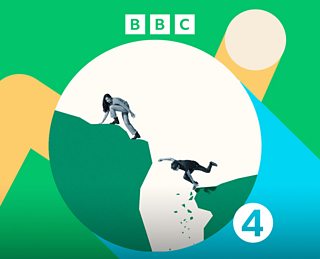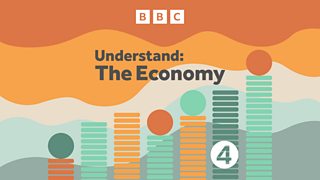Cost of living: Who's thriving and who's just surviving?
The impact of the cost-of-living crisis is being felt right across our economy and society. From householders on benefits through to those with multiple mortgages, everyone is making sacrifices of some kind. Meanwhile, high street retailers have faced a double challenge – coping with their own rising costs while keeping hard-pressed customers spending.
For a series of special episodes of Radio 4's Money Box on the subject of Thriving or Surviving?, Felicity Hannah meets three householders and three retailers to find out whether they are just getting by – surviving – or managing to thrive.

Households
Felicity speaks to householders with different income levels and outgoings and finds that each one has had to make significant life changes to get by. The householders Felicity spoke to all felt that they were just ‘surviving’ the current economic situation.
Peter
Peter had to give up his job as a music teacher because of a disability, and he now survives on benefits and some pocket money from minding a neighbour's dog.
He lives alone in a flat in Stoke and has been hit with two rent rises within a year. Housing benefit has not kept pace with private rents, and so Peter now has a shortfall of £44 a week. Moving is not an option for him because he can't afford to put down the six-week deposit that most landlords require.
"I feel like I'm £400 to £500 a month worse off," Peter says. "There isn't a second of the day when you don't think about money, and you're thinking in the pennies not the pounds."
A survey by the Resolution Foundation suggests that 75% of households are cutting back on heating, electricity and food, and Peter says the only reason he hasn't gone into debt is because he's skimping on what he eats. "I am hungry, hungrier then I remember being in the past," he says. "I'll get up and I'll have biscuits with milk and hope that that keeps me going for a bit."
Hollie
Hollie and her fiancé live in a rented house in Wigan with their baby son Leo. The couple were hoping to get married and move into their own house but have now had to put those plans on hold.
The pressure point is Hollie's maternity pay coming to an end at a time when prices for essentials such as baby milk and nappies have risen wildly (some estimates suggest 24% and 60% respectively).
Hollie's fiancé is still working but spends all his money on bills, so Hollie has been making and selling jewellery. "I'm still able to afford some luxuries," says Hollie, "but pretty soon that’s going to stop."
Kishan
Kishan owns his own home and rents out two other properties. The Bank of England expects the monthly payments on four million mortgages to increase this year. This puts people like property owner Kishan, who has three mortgages, in the firing line.
Kishan was, by his own admission, "in a very fortunate position" but is now being buffeted by mortgage increases of £800 a month on both his rental properties. This means higher rents for his tenants too. He also had a period where he was unable to do his job as an estate agent because of undergoing chemotherapy for testicular cancer. This has left Kishan with no disposable income.
"No one's comfortable anymore," says Kishan, who is now considering real estate videography as a sideline. "Everyone is feeling the pinch no matter how much they're going out there and working hard."
Find out more about the sacrifices Peter, Hollie and Kishan have had to make by listening to the episode in full here.

The high street
Felicity visits The Glass Works, Barnsley's new redeveloped undercover market, where the council is encouraging local business with low rents for stalls. Research shows that 38p of every pound spent on the high street supports local jobs and suppliers, so this kind of venture can play a pivotal role in the local economy. There she meets the owners of three small businesses who feel like they're actually managing to 'thrive' in the current economic climate.
Dave
The Yorkshire Rose Coffee Shop is one of a number of companies run by busy entrepreneur Dave Mills. It has been very successful since opening in December 2022. At £2 for coffee and £2.50 for bubble tea, price point definitely plays a role in this success, as well as the friendly environment.
Dave is happy that the council only charge him £70 a week for his space on the market. His profit for March was £14,000, and he has used some of the money to pay the rent for a local homeless charity.
David
David owns and runs Barkers the Butchers, which has been in Barnsley's market for more than 30 years. Post-Covid, sales were back on track but then customers started to spend less and overheads increased.
David says sourcing quality meat, which already "costs an absolute fortune to buy", has become even more difficult.
He thinks that's because some abattoirs are closing due to rising electricity costs. The price of pork has been particularly impacted, rising by 40%. David now offers more affordable cuts of steak and barbecue meat.
David acknowledges the struggle, but is upbeat about the future. "I do believe that my son-in-law and daughter will eventually take over the business with my son," he adds, wryly, "and then it'll be their problem!"
Katie
Katie started aromatic wax melt company Candlelight Creations just before lockdown, and the business has proved popular. However, trade slowed when restrictions were lifted, and inflation saw the cost of a box of wax almost double. Trading at The Glass Works once a month has increased sales, and she makes an average of £350 to £450.
Katie also has a full-time job but has continued with her side hustle. The extra cash is helping as she moves to a bigger house with her partner.
Find out more about what 'thriving' means to Dave, David and Katie by listening to the full episode here.
In the other episodes of Money Box: Surviving or Thriving?, Felicity Hannah also visits two farms in South Wales and a school in Manchester to find out how they are coping with the cost-of-living crisis.
The information contained in this article was correct at the time of broadcast on 5 August and 25 August, 2023.
More from 大象传媒 Radio 4
-
![]()
How much money do you need to be happy?
Adam Shaw explores the ins and outs of money鈥檚 relationship to wellbeing.
-
![]()
10 tips for starting a business from junior entrepreneurs
Felicity Hannah gets advice from three young 'kidpreneurs'.
-
![]()
Neurodiversity and finances
How do you manage when you're neurodiverse or have a learning disability?
-
![]()
Five economic terms explained really simply
Inflation, interest rates and more - what they mean and how they affect you.





